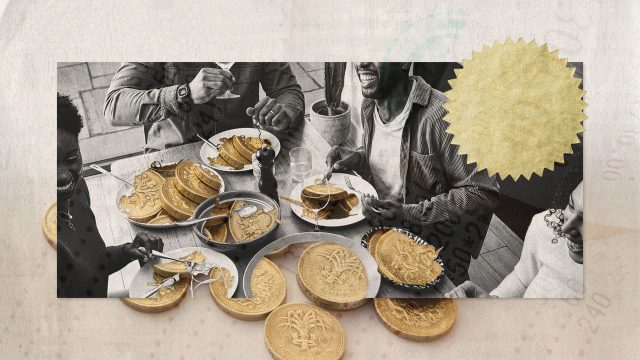
Can you put a price on friendship? Apparently you can, and it isn’t cheap. The rising cost of socialising, known as “friendflation”, is “becoming a serious pressure point” for many adult friendships, said The Mirror. “Birthdays aren’t just a few drinks at the pub, they’re weekends away, lavish brunches or fancy dinners”, and “even going for a coffee is nearly a fiver”.
‘Much bigger price tag’
Socialising has “radically evolved” to have a “much bigger price tag”, Elizabeth Currid-Halkett, author of “The Sum of Small Things”, told the Financial Times. Today, the average cost of attending a stag or hen do is £779 per person, rising to £1,200 for a trip abroad, according to the insurance company Aviva.
The soaring cost of socialising can be traced back to the 2008 recession when “inconspicuous consumption” became popular, pushing consumers towards more “experience-driven” spending rather than showing off costly material goods. The pandemic intensified that cultural shift, as people left lockdown determined to live “full lives” and increase their social activity.
Social media has played its part, too, with every get-together and holiday on full display online. “It just feels like everyone’s doing these things, so there’s that added pressure”, Lindsey Stanberry, editor of the personal finance newsletter The Purse, told the paper.
‘Equality-based model of friendship’
The feeling of being “overworked and underpaid” is alarmingly common, said Indy100. With costs for basic essentials like food shopping “spiralling”, it’s not surprising that “making memories” is seen by many as an unaffordable luxury.
This is not just a problem faced by younger generations, said USA Today. A survey of 995 Americans from BadCredit.org found that more than 65% had to “cut back on social activities” so they have funds for “housing or debt”. This included 67% of Gen X participants and 49% of Boomers.
Financial diversity in friend groups has been fuelled by an “explosion in university education”, said the FT. Student friendships struck up on a more or less level playing field can come under strain in the years following graduation if the “earning capabilities of our closest, oldest friends are not in line with our own”.
Money is still a taboo topic, and the “illusion of equality is integral” to maintaining a friendship, communications studies professor Jeffrey Hall told the paper. Many won’t speak up when forced to spend and will stretch themselves to attend social events for fear of jeopardising their relationships, in a culture in which people are increasingly pressured to “demonstrate their friendship or allegiance” by spending money.
Cost-of-living squeeze has left some feeling priced out of social events and struggling to keep up friendships






